Revealed: Australia’s favourite new cars for 2021
Last year was a difficult one for the car industry, but sales remained high. Surprising additions and old favourites made up the bestseller list.
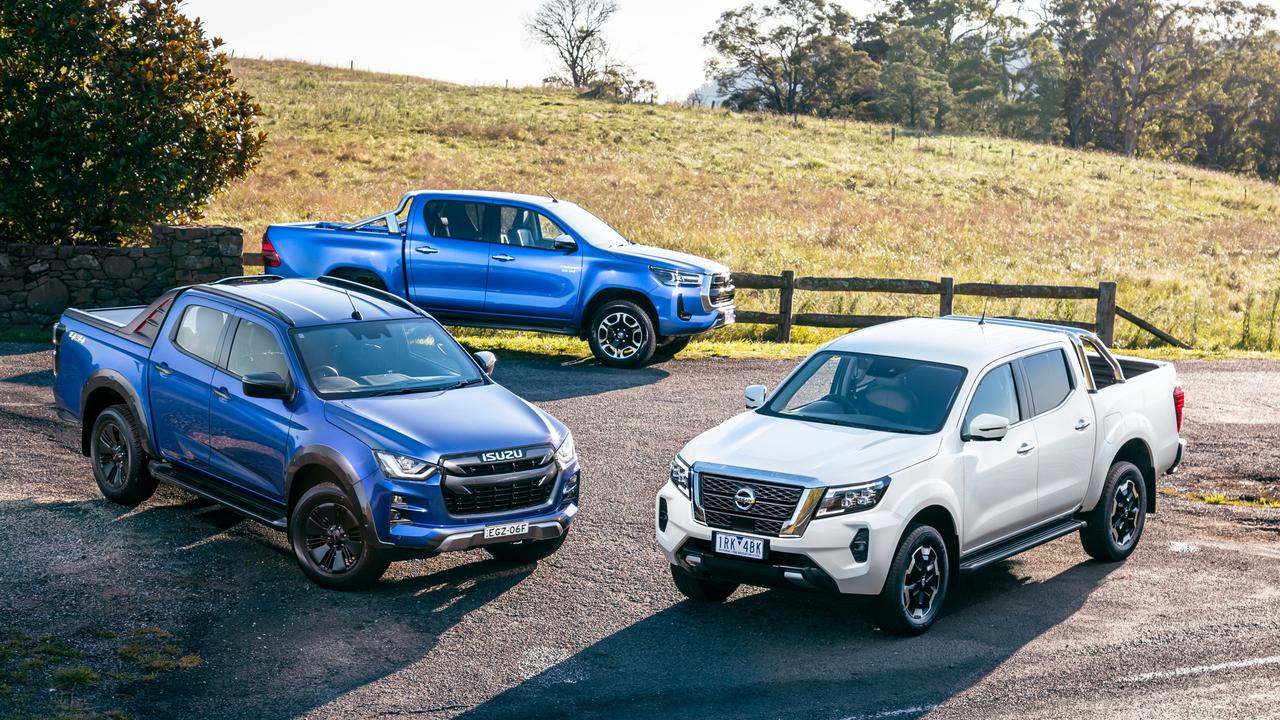
Toyota’s HiLux has finished on top of the new car sales charts for the sixth consecutive year, suggesting there is no end in sight to Australia’s love of high-riding utes.
The Ford Ranger finished a close second in its last full year of production before a new model arrives mid-year.
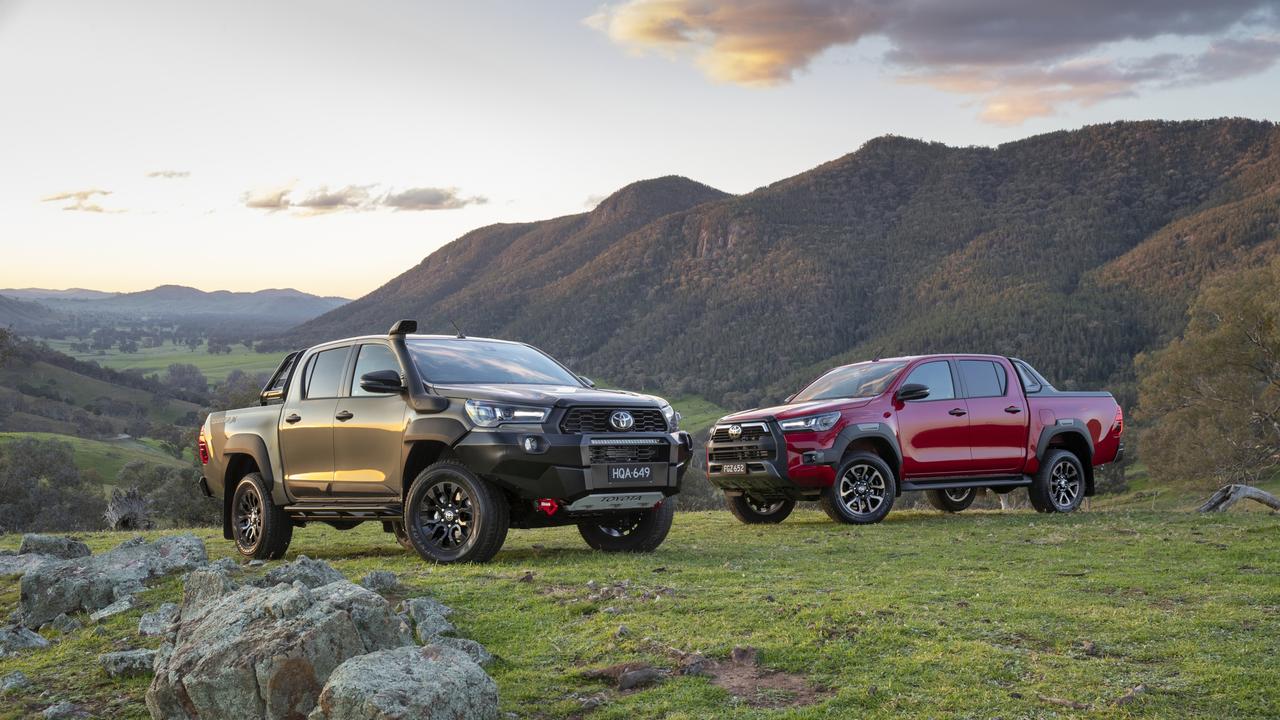
Diesel utes filled four of the top 10 places on the annual sales chart, with the Mitsubishi Triton and Isuzu D-Max also recording strong results.
Toyota’s RAV4 was third overall and the best selling SUV, helped by strong demand for a fuel-sipping hybrid variant that attracted nearly 26,000 sales.
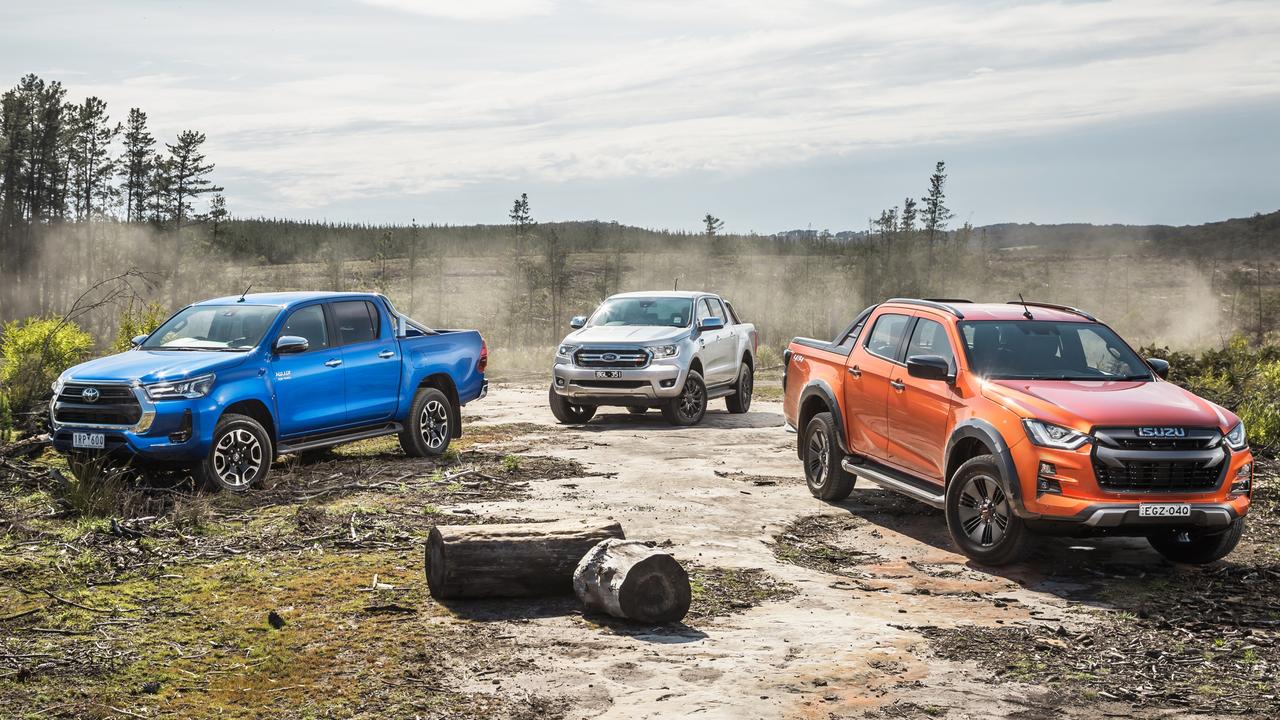
The brand notched a record 65,491 hybrid sales in 2021.
Hybrid power helped the Toyota Corolla secure fourth place and the top position for a conventional passenger car, ahead of Hyundai’s i30 in sixth.
But electric cars still represented just 0.49 per cent of new cars tallied by the Federal Chamber of Automotive Industries, an industry body that records new vehicle sales.
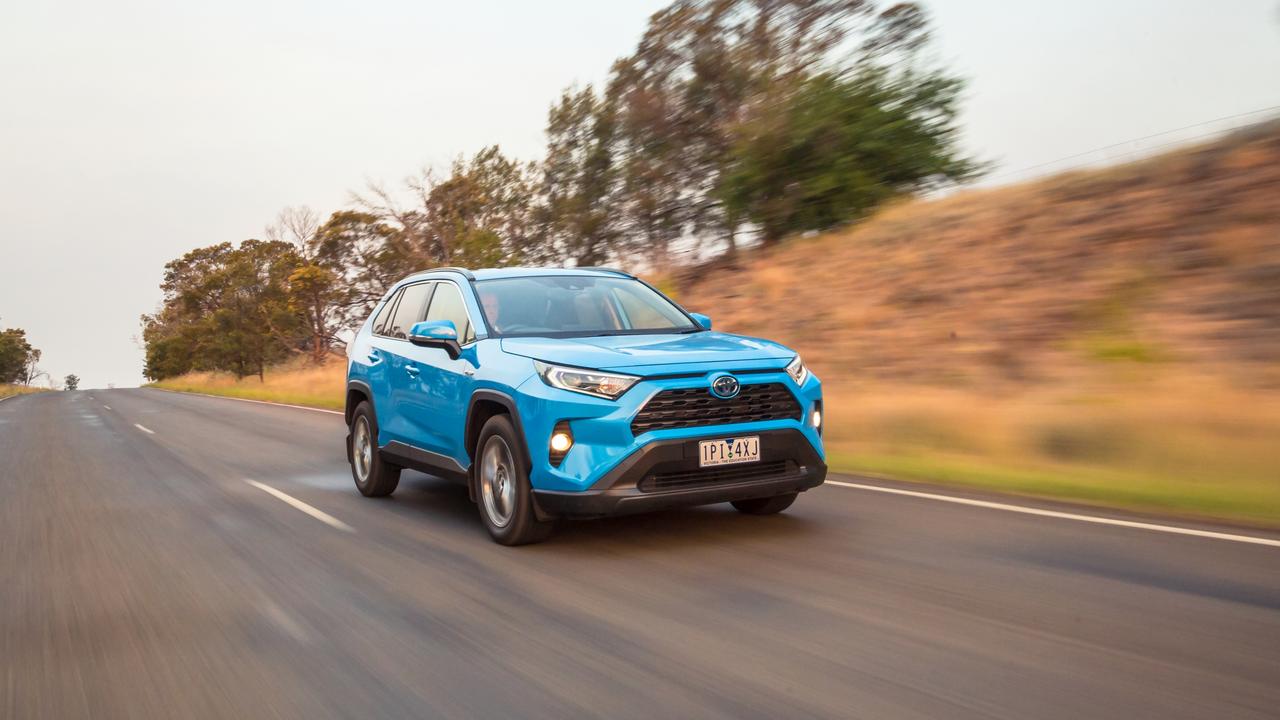
The figures are underwhelming but don’t include market leader Tesla, which refuses to reveal its sales.
It is believed the brand sold more than 10,000 cars this year.
Toyota was the number one brand overall, finishing well ahead of Mazda, Hyundai and Ford.

The market rebounded from 916,968 sales in 2020 to record 1,049,831 deliveries, an increase of 14.5 per cent.

Tony Weber, chairman of the Federal Chamber of Automotive Industries, said the strong result came despite coronavirus lockdowns and supply constraints.
“Despite the pandemic restricting access to showrooms in 2021, Australian consumers
found ways to purchase new vehicles and did so in solid numbers,” he said.
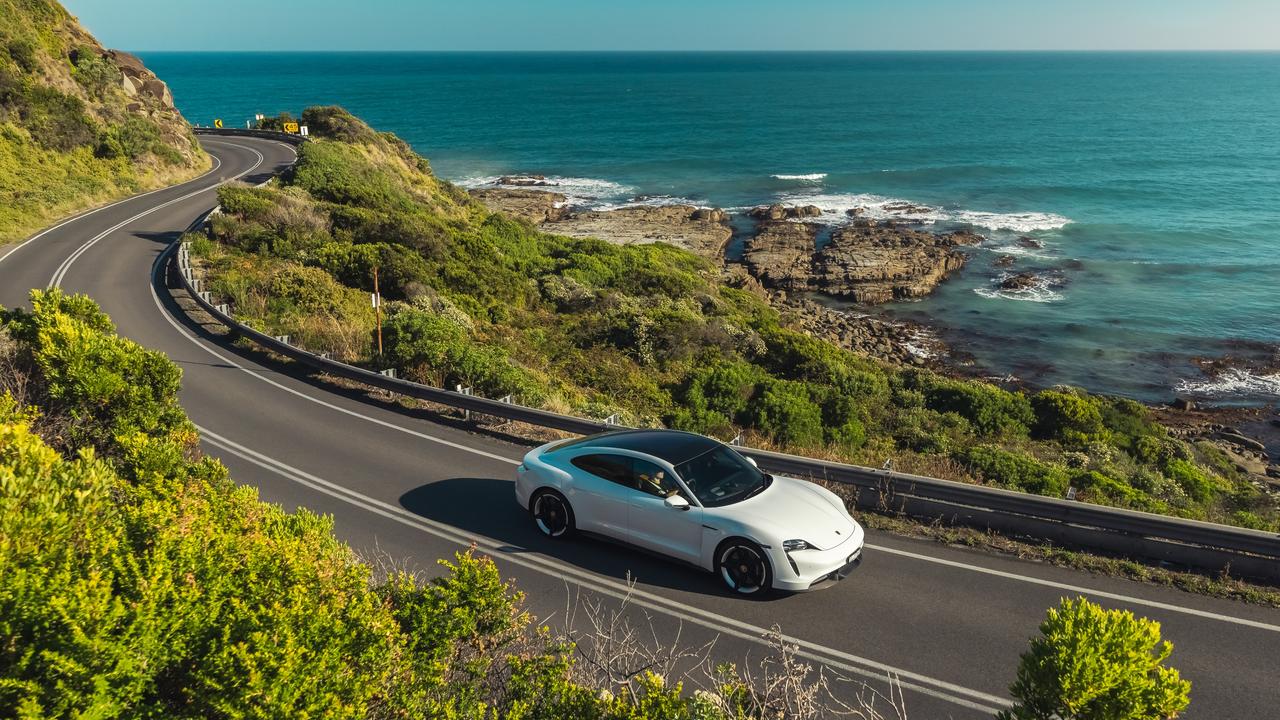
“The global shortage of microprocessors, compounded by the pandemic, had an impact
on the number of cars sold throughout Australia. Automotive manufacturers are
continuing to work to strengthen supply chains in 2022.”
Despite Mr Weber’s optimism, the figures show a marked decline in sales in the last quarter of the year.
Sales were down 14 per cent in the quarter and 18 per cent in December, as microprocessor shortages crippled supply.
Toyota vice president of sales, marketing, and franchise operations, Sean Hanley, thanked customers for being patient amid wait times that stretched beyond six months for popular vehicles.
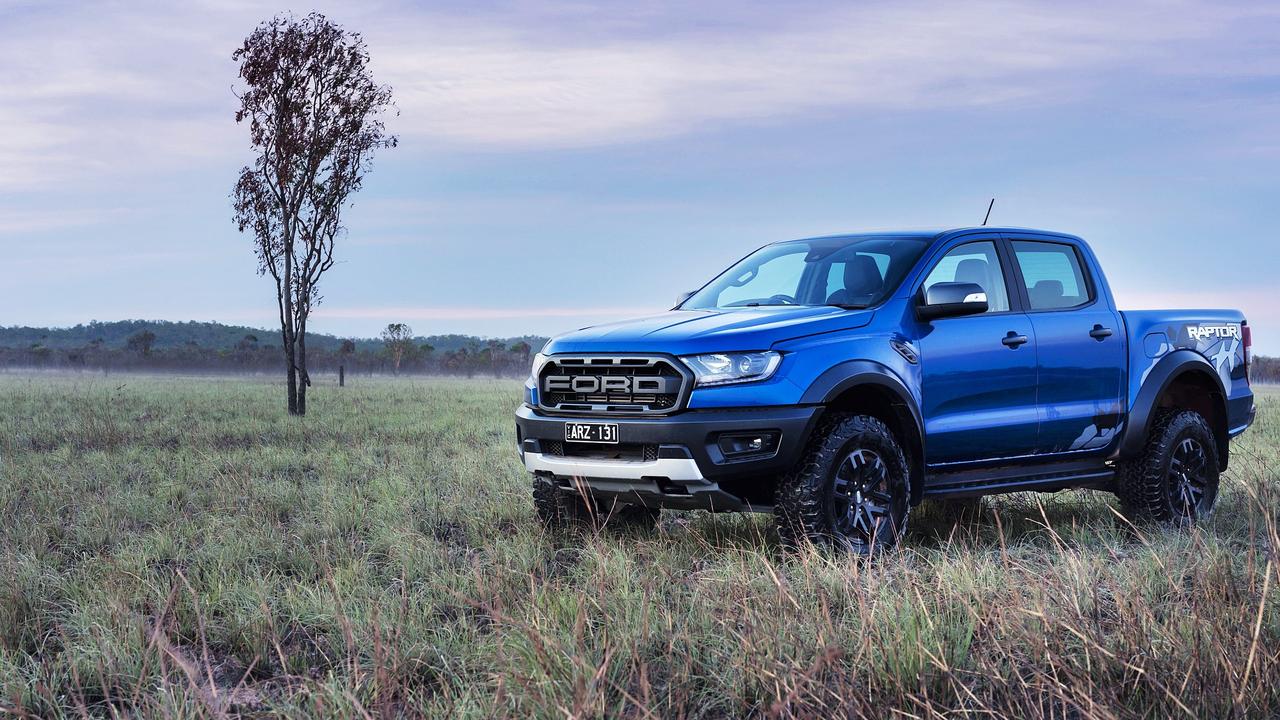
“We assure you we are doing everything we can to increase supply and get customers behind the wheel of their new Toyota as soon as possible,” he said.
“For 2022, given what we know right now, our target is to increase sales beyond last year’s total and maintain our market share above 20 per cent.”
The global giant marked 25 years as the best-selling brand in Australia.
Japan remained the number one source of new vehicles for Australia, followed by Thailand – where most utes are assembled – Korea, China and Germany.
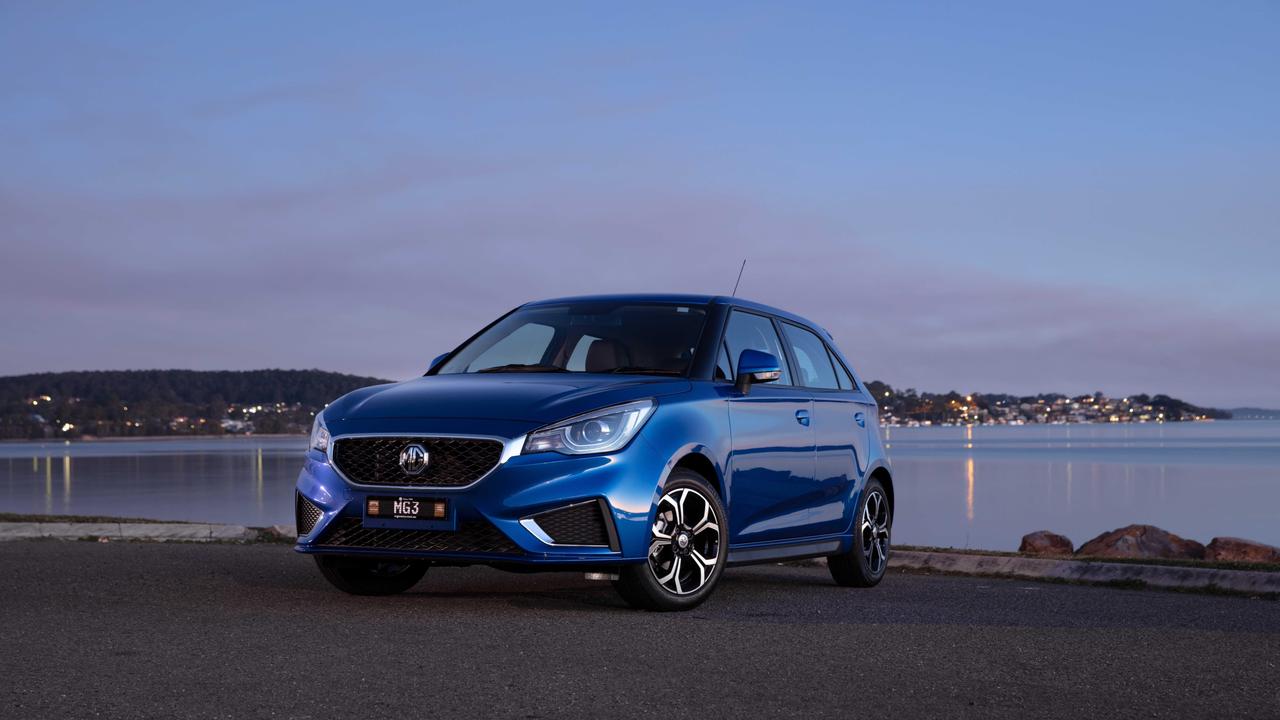
Sales of Chinese cars nearly tripled, partly because of the growth of Chinese brands but also because manufacturers such as Volvo, BMW and Tesla shifted production to the Asian giant.
China’s reborn MG shattered expectations to secure a spot inside the top 10, its sales more than doubling compared to 2020.
Great Wall Motors sales more than tripled thanks to the success of new SUVs such as the Haval Jolion.
Luxury brands such as Audi, BMW, Mercedes and Porsche failed to keep up with market growth, not helped by a global shortage of electronic components found in many prestige vehicles.
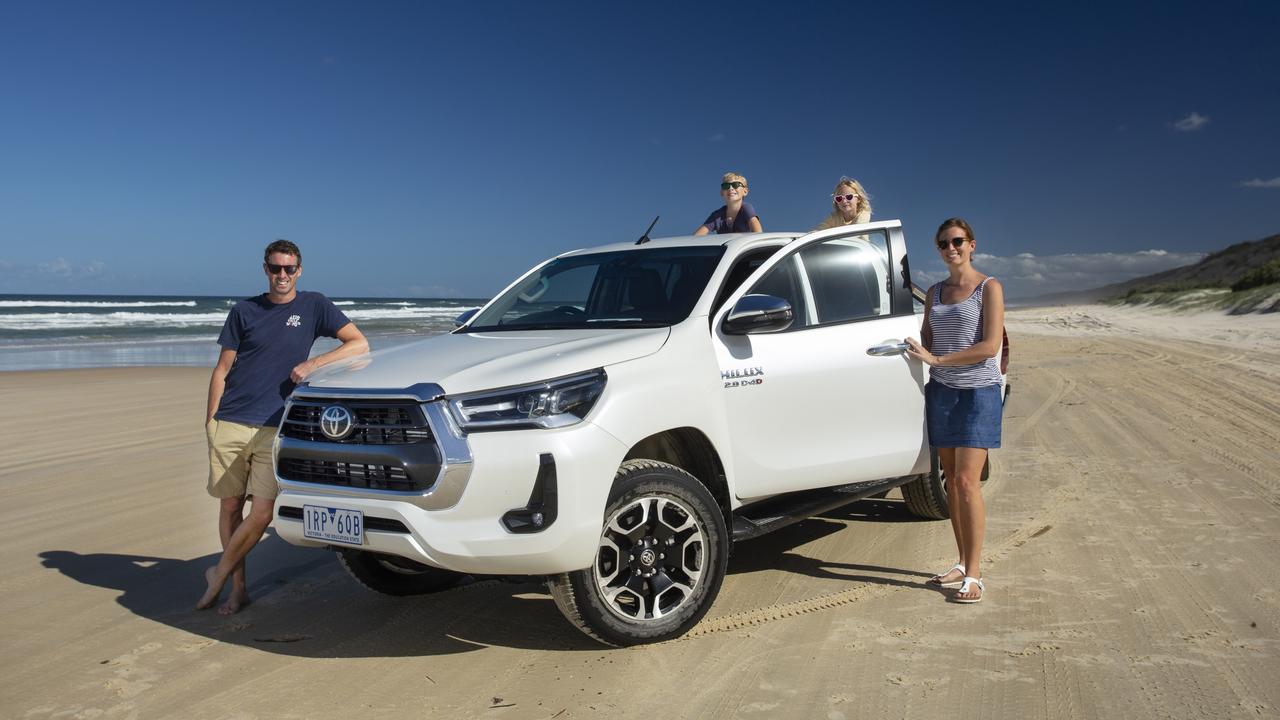
Top 10 manufacturers for 2021
1 – Toyota – 223,642
2 – Mazda – 101,119
3 – Hyundai – 72,872
4 – Ford – 71,380
5 – Kia – 67,964
6 – Mitsubishi – 67,732
7 – Nissan – 41,263
8 – Volkswagen – 40,770
9 – MG – 39,025
10 – Subaru 37,015
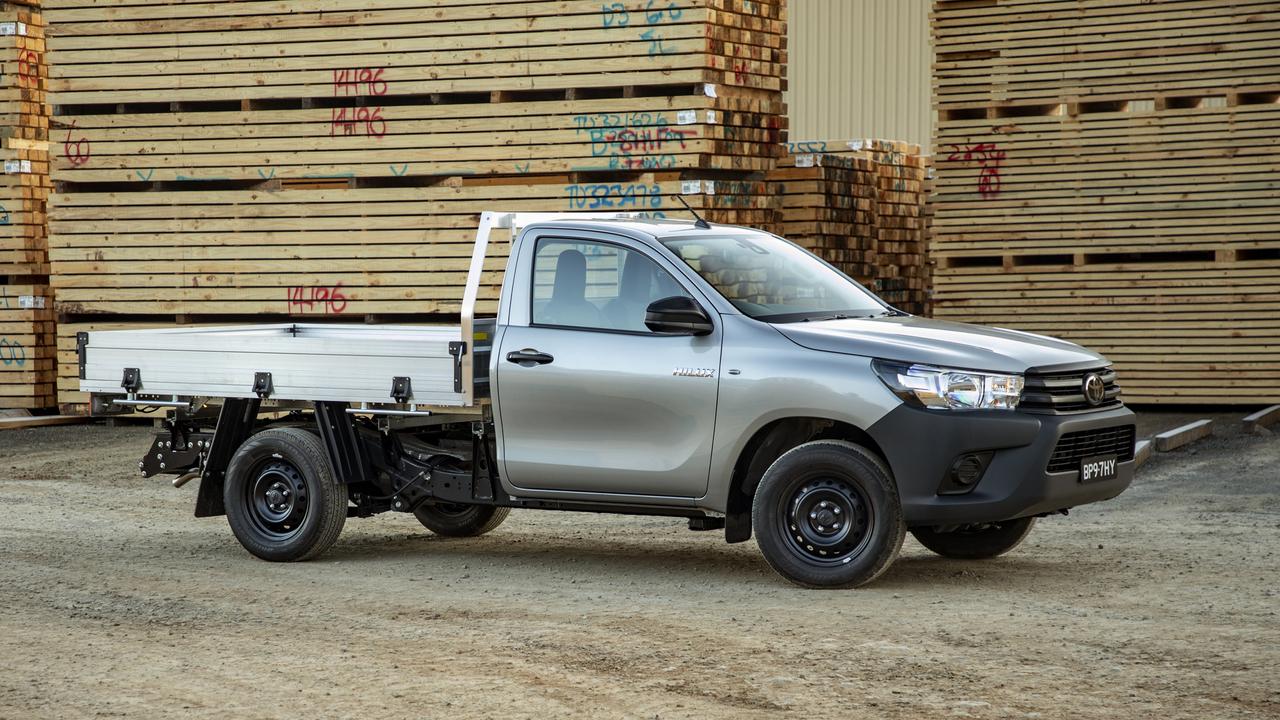
Top 10 best-selling cars
1 – Toyota HiLux – 52,801
2 – Ford Ranger – 50,279
3 – Toyota RAV4 – 35,751
4 – Toyota Corolla – 28,768
5 – Toyota LandCruiser – 26,633
6 – Hyundai i30 – 25,575
7 – Isuzu D-Max – 25,117
8 – Mazda CX-5 – 24,968
9 – Toyota Prado – 21,229
10 – Mitsubishi Triton – 19,232
Source: VFacts



